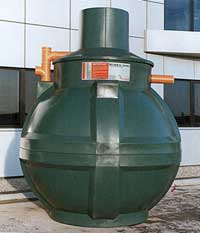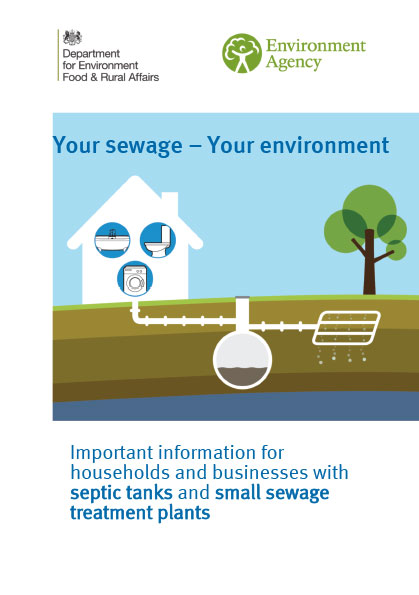Call us on+44 (0)1527 529809
Septic Tanks and Packaged Sewage Treatment Plants
 Septic Tanks systems were first introduced into the UK in the 1800’s and were mainly used for the treatment of sewage from large country houses, when it was found that the old style ‘privvies’ were no longer acceptable or caused smell problems.
Septic Tanks systems were first introduced into the UK in the 1800’s and were mainly used for the treatment of sewage from large country houses, when it was found that the old style ‘privvies’ were no longer acceptable or caused smell problems.
Use of Septic Tank systems became more popular, with some of the larger properties having filter beds and humus tanks added to further treat the sewage before it was discharged into the local watercourse. In the early part of the 1900’s a lot of the smaller rural properties eventually started using them as well.
Because Septic Tank systems are underground, the people who own and use them often ignore them. However because they are generally out of sight, they should certainly not be out of mind! An improperly sited, designed, installed, maintained or operated Septic Tank system can pollute drinking and surface water and cause many problems.

Septic Tank and Sewage Treatment Plant Regulations 2020
In January 2015, new rules were introduced that simplify the way septic tanks and small sewage treatment plants are regulated in England, protecting the environment and improving water quality.
If you have a septic tank that discharges directly to a surface water you will need to replace or upgrade your treatment system by 1 January 2020. Where properties with septic tanks that discharge directly to water courses are sold before 1 January 2020, responsibility for the replacement or upgrade of the existing treatment system should be addressed between the buyer and seller as a condition of sale.
If the Environment Agency finds evidence that your septic tank discharging to a surface water is causing pollution, you will need to replace or upgrade your system earlier than 1 January 2020. You will usually have to do this within 1 year, although this will be agreed on a case-by-case basis.
If you have a septic tank or small sewage treatment plant
As the ‘operator’ of a septic tank or small sewage treatment plant you must check you meet the general binding rules. You must apply for a permit if you do not. You’re an operator if any of the following is true:
• you own the property that uses the system
• you own a property that shares the system with other properties – each property owner is an operator, and you’re jointly responsible for complying with the general binding rules
• you have a written agreement with the property owner that says you’re responsible for the system’s maintenance, for example you’re renting and it’s in your tenancy agreement
Use the correct treatment system
You must use a small sewage treatment plant to treat the sewage if you’re discharging to a surface water such as a river or stream. A small sewage treatment plant (also known as a package treatment plant) uses mechanical parts to treat the liquid so it’s clean enough to go into a river or stream. Discharges from septic tanks directly to a surface water are not allowed under the general binding rules.
How SPE can help
SPE can specify and supply Sewage Treatment Plants to cater for 6 population equivalent to 500+ population equivalent and offer a Project Management Service to design and oversee the installation if required. Our Sewage Treatment Plants are specified for minimum low-cost maintenance and, as independent specialists, we will specify the system that best meets the requirements of each individual application. We offer a full commissioning and after sales service, including individually tailored Maintenance Contracts involving planned maintenance visits.
Click here to download Environment Agency guidance on regulation of septic tanks and small sewage treatment plants: important information for households and businesses with septic tanks and small sewage treatment plants.
Click here for more information from the Environment Agency.
© 2025 SPE Ltd | Privacy Policy | Quality Policy | Environmental Policy | Designed by SPE Ltd


